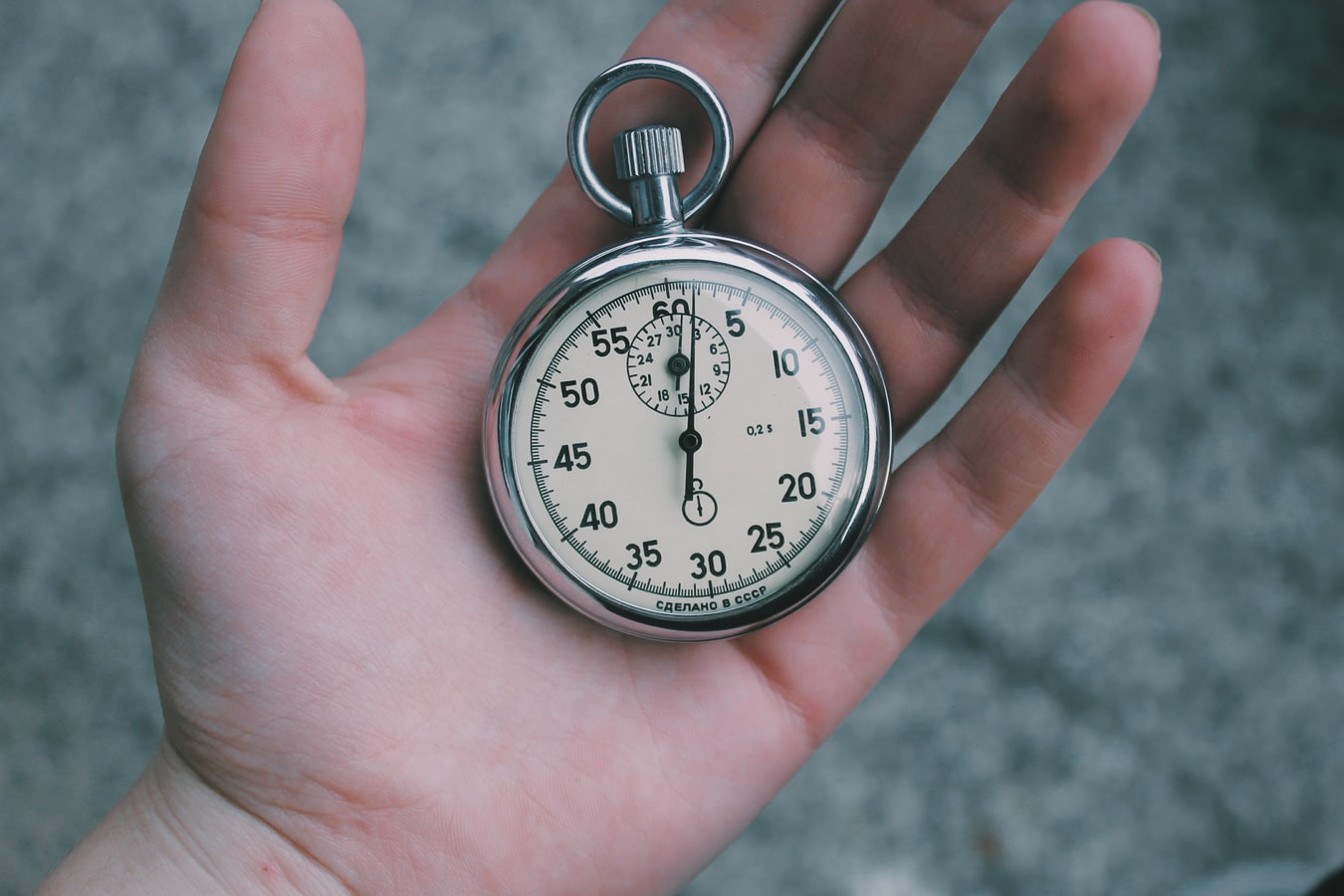Being addicted to substances is tough. Realizing you need help is a big step. Making that decision to go to an inpatient drug rehab or treatment center is incredibly important. Finishing a rehabilitation program is outstanding, but the hard work does not stop there. Often, individuals relapse after treatment. It is an unfortunate circumstance, but it does happen, more frequently than some would assume.
The reality is that addiction is a difficult thing to beat. The cravings can come back, and the individual can fall into old patterns. Some may say that individuals have control over their addiction and choose to relapse, but being addicted to drugs is not entirely like that. Drug addictions can affect individuals mentally, physically, emotionally and psychologically. Addicts are literally rewired by their substance use to crave those substances over everything else.
It is not enough to know that users of various drug relapse; we need to understand why they relapse. Here are five reasons why drug addicts relapse. Even though individuals may regress for multiple reasons other than these circumstances, these are very common among individuals who have relapsed.
Celebrations/Parties
Think about the last time you went to a birthday party. What did you see there? Presents, cake, alcohol? This may seem okay for the average individual but put yourself in an addicts shoes. If you were a recently recovering alcoholic who just made a significant breakthrough with their sobriety, imagine how it would feel to see all your closest friends and family enjoying a delicious cocktail. Recognize that uncomfortable and jealous feeling you’re experiencing right now? Addicts recovering from drug rehab feel the same way.
There are certain places like parties or concerts where drugs are prevalent. It is crucial that the individual thinks about where they are going and what will occur at that function. If they are going to attend a concert and they are recovering from a cocaine addiction, it would be a good idea to think if cocaine will be there. If the answer is yes, it might be in the best interest of the former user to avoid this concert to avoid temptations.
Triggering Images
Seeing things we enjoy or love can stir emotions within us. Viewing the source of our obsession can cause various problems. We could spend months in a rehab facility and think that we are stronger than our addiction and can face anything. When we come face to face with our addictive substance or even see it on TV, for instance, can cause a rise. Just because we detox our bodies and minds does not mean that temptations won’t sneak into our minds.
Although our brain is a fantastic organ, it has an incredible way of highlighting our unconscious desires. One way that we can fall victim to these unconscious desires is in our dreams. Addicts may dream about their drug of choice or previous experiences with them, and when they wake up, they feel tempted and crave to experience that feeling again.
Sometimes it is impossible and unpredictable when we see substances, but it is highly encouraged that if the individual has previous knowledge about drugs being present at functions or friends’ homes, they need to be avoided.
Old People and Places
Imagine that you just got out of rehab and hadn’t been in contact with your friends for an extended period. You would miss them correct? If I had to leave my friends, I would miss them. But think to yourself. Are these people the individuals you want to surround yourself with? If they support your sobriety and inflict positive attitudes around you, then you would want to keep them around. But what about the friends you used to get high with?
They are your friends, but their intentions might not be the best. If they are still using drugs, it can be a stressor and serve as a temptation to you, even if you are sober. You may have friends that you met in rehabilitation or through a drug rehab near me search, and those are good friends to have because they know the journey you are going on. It is smart to avoid current drug users, even if they are your friends, so you don’t fall back into old habits. The same goes for locations where you used to use.
If specific sites were the places where drug use occurred, it is best to avoid them. Visiting those areas can send a rush of emotions and memories through you, even if a drug was only used there once or twice. Our brains are amazing organs and can remember events, even if they just occurred once. To maintain sobriety, it is best to avoid locations where usage happened if it is possible.
Stress
Stress is a powerful feeling and emotion that can lead us to do things we usually wouldn’t. When we stress out too much, we can increase our cortisol levels, and that can lead to prolonged health problems like high blood pressure, hypersensitivity and more. One common thing individuals do when they are stressed is to turn their attention to something they like to distract themselves. For some that might be having a meal with comfort food, while for others, they might crave the drug high they haven’t had in a while.
If the individual has recently emerged from rehab, they may have a stronger desire to have their drug of choice; if they are stressed, they might justify using as a way to calm down. Stress can come in a variety of forms but one thing that is common is the desire to eliminate stress with something that alleviates our feelings, but for drug addicts, it is necessary to find something that calms them down that won’t harm their sobriety.
Conflicting Emotions
Using drugs can have an intense effect on our feelings. Certain substances can affect our brain chemistry and alter our emotions very profoundly. Sometimes individuals get involved with drugs and have a hard time asking for help, or even when they get help and are in rehab, are still struggling emotionally.
It should be understood that rehab is not easy. Detox is harsh, withdrawing from strong addictions are grueling and reconnecting/gaining trust with family and friends can be draining. Even though rehab is very tough, it is also tough staying clean after recovery. Sometimes when we have conflicting emotions, it can upset us and confuse us. By experiencing an emotional roller coaster, we succumb to stress.
The change of environment or re-entering society sober can also cause us to feel shaken up emotionally. When our emotions are out of whack, we turn to things that are constant in our life to regulate all of the change, and for drug users, that can be their drug of choice.
Relapse Prevention Techniques
Avoiding relapse is tough. Everyone is rooting for you and wants you to keep your sobriety. Your support system is in your corner and understands that even though controlling your urges is tough, that you are in control. Sometimes family and friends aren’t enough, and we need to turn back to drug treatment centers. There is nothing wrong asking for help, and if you believe you are approaching relapse, you are better off having a head start and getting help early.
Consider The Consequences
Typically, when a recovering addict considers relapsing back into drug or alcohol use, there is a false assumption that they will be able to control their use this time. Just one drink. Just one hit. Just one good high for the month, for the week, or for the day. But think through the consequences. If you use again, it will only open the door to further usage. You’ll wake the next morning feeling guilty and disappointed in yourself, or maybe even depressed, which could cause you to use again.
One use usually leads to another, and while it may seem like you’re capable of controlling it this time, you’re thinking is flawed. Addicts cannot self-medicate. If you were capable of controlling your drug or alcohol use at any time, you wouldn’t be where you are right now. And it’s nothing to be ashamed of. There is veritable science showing that some people are simply predisposed to being addicts.
Call a Friend/Family Member
When you begin having the urge to use again, it’s important not to keep those feelings bottled up. You may feel like this is something you can handle on your own. You don’t want it to be someone else’s problem. You don’t want to admit that you’re feeling powerless. Maybe you feel that if you can keep it to yourself you can use in private and no one will know. This is all flawed reasoning. There is a reason most programs advocate for sponsors and close monitoring. This is because being open and talking through your feelings will help resolve those urges. Once they’re out in the open, they lose the power they held in your mind.
Occupy Your Mind
If you don’t have someone available to talk to, or perhaps you just feel restless, the next best thing is to get your body and mind focused on something else. If you can, go to a meeting, go for a walk, go to the gym, go for a hike. The important thing is to not let your urge to use again swallow up all the thoughts in your head. You need to channel the restless energy to use into an outlet that gives you a sense of purpose, or simply takes your mind in a different direction.
Wait 30 minutes
Maybe your urges hit you suddenly, and now they’re producing physical reactions in your body. Most drug cravings only last from 15-30 minutes, so if you’re experiencing the urge, just try to keep yourself busy or talk to someone for 30 minutes, until cravings abate. If you can keep your mind and body busy, it will quickly dissipate.
Look at the Big Picture
When you feel these urges, you should pause and look at the bigger picture. Urges and cravings to use again are often accompanied by feelings hopelessness or despair about maintaining sobriety forever. It’s like staring at an insurmountable wall and despairing over how you’re going to climb it. However, if you consider your future as one day at a time, you can see how scaling the wall is possible. One brick at a time. It’s not realistic to expect yourself to be strong forever. There will be moments that test you, like this one, but if you can extend it just one more day, you will have succeeded. Do your recovery in manageable, bite sized chunks.
Relax
Relaxing your mind and body is an important aspect of the recovery process. When you’re tense, you’re more apt to fall into relapse. This is because you fall into scared methods of short sighted thinking. Some ways to get out of these pitfalls are to follow the tips in this list. Another way is to practice physical and mental exercises that take your mind of using again. Yoga, meditation, sports, expressive therapy, and other methods can help you relax.
Avoid Romanticizing Drug Use
As they say, “the grass is always greener”. When it comes to relapse, addicts sometimes do it because they’ve become bored of life without drugs, or they’ve spent a lot of time thinking about the highs instead of the lows of their substance use. And while at the time it may have felt great, you’re conveniently forgetting the lows. Remember the come downs? The hangovers? The destruction to your life and relationships? When we want something, we often develop tunnel vision and forget about the consequences. Avoid thinking only about the few moments of fun you got from addiction. Keep in mind that if you don’t recover from substance abuse, consequences will begin to pile up. Forget about the few good times with addiction to eliminate the chance of misery knocking at your door later in life.
Learn Your Triggers
Do you sometimes find yourself saying “just one won’t hurt?” Well, that is a sign of weakness during recovery. You have to convince yourself that addiction is dangerous, and stay away from things which might tempt you to get back to the old ways. Don’t think that just because you are from rehab that one drink won’t have the same issues this time. The trick is to the triggers that lead to relapse so that you are armed with knowledge and recovery skills that you can use when temptation to use drugs or alcohol strikes.
If you find yourself falling into old patterns and ways of thinking, you may become triggered by old sources of anxiety and stress. Through therapy and structured counseling, you can hopefully learn the latent emotional triggers that make you want to use. For most of us, stress, anger, and sadness are all common reasons. But the things that cause these feelings are different for us all. It’s up to you to recognize why these things trigger you, and work to reduce their appearance in your life, or figure out if your way of thinking is unhealthy.
In Conclusion
If you believe your loved one is suffering from alcohol or drug addiction, our inpatient treatment facilities have various programs designed to move our patients along on the road to recovery. Along with our programs, we also have blog content that can help with motivation and education about the sobriety. With Landmark Recovery’s alcohol rehab, we can help you or a loved one get back to living a healthy lifestyle.

Choose Recovery Over Addiction
We're here 24/7 to help you get the care you need to live life on your terms, without drugs or alcohol. Talk to our recovery specialists today and learn about our integrated treatment programs.








